Investigators
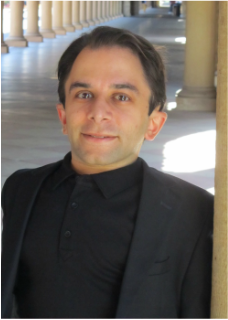
Nik Sawe
Lecturer, Emmett Interdisciplinary Program in Environment and Resources
Senior Fellow, Effective Philanthropy Lab
Project Scientist, Lawrence Berkeley National Laboratory
Website
Curriculum Vitae
Nik Sawe utilizes a combination of neuroimaging, behavioral experiments, and econometric surveys to understand why we make the environmental choices we do. Presently, his work focuses on how we value the environment, what motivates environmental philanthropy, and consumer decision-making involving energy efficiency and eco-labeling. He is currently a Lecturer for the Emmett Interdisciplinary Program in Environment and Resources, Senior Fellow at the Effective Philanthropy Lab, and lead the Environmental Decision-Making and Neuroscience Lab at Stanford University, as well as a Project Scientist at Lawrence Berkeley National Laboratory. He holds a Ph.D. in Environment and Resources and a B.S. in Biology from Stanford University.
Lecturer, Emmett Interdisciplinary Program in Environment and Resources
Senior Fellow, Effective Philanthropy Lab
Project Scientist, Lawrence Berkeley National Laboratory
Website
Curriculum Vitae
Nik Sawe utilizes a combination of neuroimaging, behavioral experiments, and econometric surveys to understand why we make the environmental choices we do. Presently, his work focuses on how we value the environment, what motivates environmental philanthropy, and consumer decision-making involving energy efficiency and eco-labeling. He is currently a Lecturer for the Emmett Interdisciplinary Program in Environment and Resources, Senior Fellow at the Effective Philanthropy Lab, and lead the Environmental Decision-Making and Neuroscience Lab at Stanford University, as well as a Project Scientist at Lawrence Berkeley National Laboratory. He holds a Ph.D. in Environment and Resources and a B.S. in Biology from Stanford University.

Brian Knutson
Associate Professor of Psychology & Neuroscience
Website: Spanlab
Knutson's primary interest is in the neural basis of emotion. He believes that a certain class of neurotransmitters (the biogenic amines) can powerfully modulate emotional experience at specific brain locations. He has addressed this topic with progressively more intricate methods including self-report, measurement of nonverbal behavior, comparative ethology, psychopharmacology, and functional brain imaging. His long-term goal is to understand the neurochemical and neuroanatomical mechanisms responsible for emotional experience and to explore the implications of these findings for the assessment and treatment of clinical disorders of affect and addiction, as well as economic behavior.
Associate Professor of Psychology & Neuroscience
Website: Spanlab
Knutson's primary interest is in the neural basis of emotion. He believes that a certain class of neurotransmitters (the biogenic amines) can powerfully modulate emotional experience at specific brain locations. He has addressed this topic with progressively more intricate methods including self-report, measurement of nonverbal behavior, comparative ethology, psychopharmacology, and functional brain imaging. His long-term goal is to understand the neurochemical and neuroanatomical mechanisms responsible for emotional experience and to explore the implications of these findings for the assessment and treatment of clinical disorders of affect and addiction, as well as economic behavior.
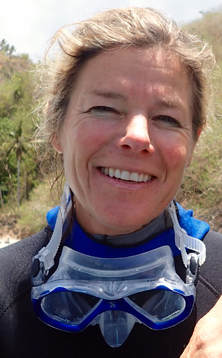
Tierney Thys
Research Associate, California Academy of Sciences
National Geographic Explorer
Tierney Thys, PhD is a Research Associate at the California Academy of Science,filmmaker, marine biologist and National Geographic Explorer. Her work bridges the worlds of primary research and science communication to promote environmental understanding and stewardship. Current research includes developing evidence-based nature interventions for incarcerated populations and quantifying the psychological and neurological power of nature and nature imagery to promote pro-environmental behavioral change and decision-making. Thys helped create the award winning NSF-funded series Strange Days on Planet Earth
(www.pbs.org/strangedays), Shape of Life www.pbs.org/kcet/shapeoflife) and most recently a series of short TEDed films on topics ranging from animal evolution to plankton, sharks and plastic pollution. She serves on the science advisory boards of the Wildscreen Trust, Think Beyond Plastic and editorial board for the Journal of Animal Sentience.
Research Associate, California Academy of Sciences
National Geographic Explorer
Tierney Thys, PhD is a Research Associate at the California Academy of Science,filmmaker, marine biologist and National Geographic Explorer. Her work bridges the worlds of primary research and science communication to promote environmental understanding and stewardship. Current research includes developing evidence-based nature interventions for incarcerated populations and quantifying the psychological and neurological power of nature and nature imagery to promote pro-environmental behavioral change and decision-making. Thys helped create the award winning NSF-funded series Strange Days on Planet Earth
(www.pbs.org/strangedays), Shape of Life www.pbs.org/kcet/shapeoflife) and most recently a series of short TEDed films on topics ranging from animal evolution to plankton, sharks and plastic pollution. She serves on the science advisory boards of the Wildscreen Trust, Think Beyond Plastic and editorial board for the Journal of Animal Sentience.
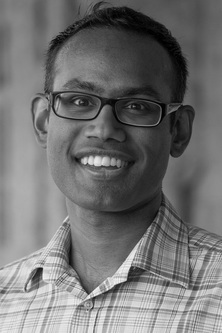
Anshuman Sahoo
Research Associate, Stanford Graduate School of Business
Research Fellow, Steyer-Taylor Center for Energy Policy and Finance
Website
Anshuman (Ansu) Sahoo was a Research Associate at the Graduate School of Business at Stanford and Research Fellow of the Steyer-Taylor Center for Energy Policy and Finance. His research applies economic theory, econometrics, and the tools of operations research to address issues related to energy technology and policy. In particular, he develops and applies methods to study the economic efficiency of alternative carbon mitigation strategies. This work encompasses two streams. In one track, he examines the behavior of firms and primarily uses cost models and metrics to predict competitiveness. In the other stream, he builds choice models to investigate consumer behavior.
Ansu continues to work with the lab on several ongoing projects at the intersection of energy efficiency, consumer choice, and decision neuroscience, but has returned to his role as a management consultant with the Boston Consulting Group, where his clients include companies in the private equity, industrial goods, and energy sectors. He holds a Ph.D. in Management Science and Engineering and an M.S. in Statistics from Stanford University. He also earned a B.S.E. in Chemical Engineering from Princeton University.
Research Associate, Stanford Graduate School of Business
Research Fellow, Steyer-Taylor Center for Energy Policy and Finance
Website
Anshuman (Ansu) Sahoo was a Research Associate at the Graduate School of Business at Stanford and Research Fellow of the Steyer-Taylor Center for Energy Policy and Finance. His research applies economic theory, econometrics, and the tools of operations research to address issues related to energy technology and policy. In particular, he develops and applies methods to study the economic efficiency of alternative carbon mitigation strategies. This work encompasses two streams. In one track, he examines the behavior of firms and primarily uses cost models and metrics to predict competitiveness. In the other stream, he builds choice models to investigate consumer behavior.
Ansu continues to work with the lab on several ongoing projects at the intersection of energy efficiency, consumer choice, and decision neuroscience, but has returned to his role as a management consultant with the Boston Consulting Group, where his clients include companies in the private equity, industrial goods, and energy sectors. He holds a Ph.D. in Management Science and Engineering and an M.S. in Statistics from Stanford University. He also earned a B.S.E. in Chemical Engineering from Princeton University.
Collaborators
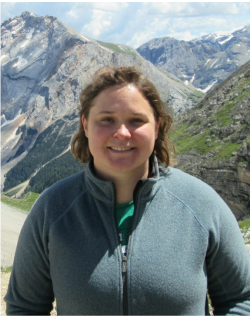
Fran Moore
Assistant Professor, Environmental Science and Policy, UC Davis
Website
Fran Moore is an Assistant Professor in the Department of Environmental Science and Policy at UC Davis, working at the intersection of environmental economics and climate science. Her research seeks to improve our understanding of the economic and social impacts of climate change and to better understand our ability to adapt to those impacts. To do this she combines econometric analysis, experimental approaches, climate model output, and economic modeling.
Assistant Professor, Environmental Science and Policy, UC Davis
Website
Fran Moore is an Assistant Professor in the Department of Environmental Science and Policy at UC Davis, working at the intersection of environmental economics and climate science. Her research seeks to improve our understanding of the economic and social impacts of climate change and to better understand our ability to adapt to those impacts. To do this she combines econometric analysis, experimental approaches, climate model output, and economic modeling.
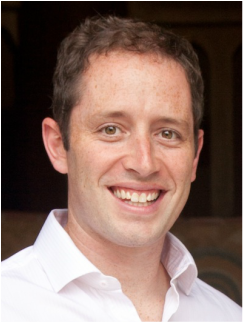
Hal Hershfield
Assistant Professor of Marketing, Anderson School of Management, UCLA
Hershfield's research focuses on judgment and decision-making and social psychology, with a particular interest in how thinking about time can strongly impact decision-making and emotional experience. Prior to UCLA, Professor Hershfield taught at NYU’s Stern School of Business, and was a Post-Doctoral Fellow at the Kellogg School of Management at Northwestern University. Professor Hershfield received his Ph.D. from Stanford University, and his B.A. from Tufts University. He was recently named a Rising Star by the Association for Psychological Science, and has received funding from the Templeton Foundation’s New Paths to Purpose Grant Program, and the Russell Sage Foundation Small Grant in Behavioral Economics. His work has been published in top journals including The Proceedings of the National Academy of Sciences, Psychological Science, and the Journal of Personality and Social Psychology.
Assistant Professor of Marketing, Anderson School of Management, UCLA
Hershfield's research focuses on judgment and decision-making and social psychology, with a particular interest in how thinking about time can strongly impact decision-making and emotional experience. Prior to UCLA, Professor Hershfield taught at NYU’s Stern School of Business, and was a Post-Doctoral Fellow at the Kellogg School of Management at Northwestern University. Professor Hershfield received his Ph.D. from Stanford University, and his B.A. from Tufts University. He was recently named a Rising Star by the Association for Psychological Science, and has received funding from the Templeton Foundation’s New Paths to Purpose Grant Program, and the Russell Sage Foundation Small Grant in Behavioral Economics. His work has been published in top journals including The Proceedings of the National Academy of Sciences, Psychological Science, and the Journal of Personality and Social Psychology.
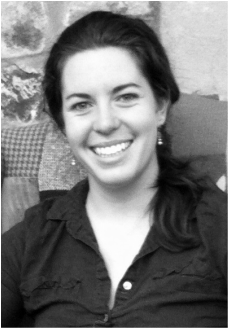
Melanie Craxton
Energy Economist
Melanie Craxton received her PhD from Stanford in Management Science and Engineering. Her research takes an applied microeconomic approach to energy and environmental policy considerations. Specifically, Melanie’s dissertation work aims to bring insights from the behavioral economics literature into analyses of energy policy in ways they have not been considered before. Her specific area of interest currently is in consumers’ perception, or misperception, of information, such as costs or prices, that lead them to behave sub-optimally in traditional economic terms, particularly when understanding decisions related to energy consumption.
Melanie holds an undergraduate MA(Hons) degree in Economics from the University of Edinburgh where in addition to her economics studies, she spent considerable time as a History and then Mathematics student. Melanie’s broad interests are also reflected in research roles in both the private and non-profit sectors on topics ranging from microfinance to nuclear policy in the United States and windfarm subsidies in Scotland. Melanie is currently a Research Assistant at the Precourt Energy Efficiency Center at Stanford and the 2016 Student Representative on the governing council of the United States Association for Energy Economics (USAEE).
Energy Economist
Melanie Craxton received her PhD from Stanford in Management Science and Engineering. Her research takes an applied microeconomic approach to energy and environmental policy considerations. Specifically, Melanie’s dissertation work aims to bring insights from the behavioral economics literature into analyses of energy policy in ways they have not been considered before. Her specific area of interest currently is in consumers’ perception, or misperception, of information, such as costs or prices, that lead them to behave sub-optimally in traditional economic terms, particularly when understanding decisions related to energy consumption.
Melanie holds an undergraduate MA(Hons) degree in Economics from the University of Edinburgh where in addition to her economics studies, she spent considerable time as a History and then Mathematics student. Melanie’s broad interests are also reflected in research roles in both the private and non-profit sectors on topics ranging from microfinance to nuclear policy in the United States and windfarm subsidies in Scotland. Melanie is currently a Research Assistant at the Precourt Energy Efficiency Center at Stanford and the 2016 Student Representative on the governing council of the United States Association for Energy Economics (USAEE).
Research Assistants

Rebecca Layne
Mathematical and Computational Sciences
Rebecca Layne is an undergraduate student studying Mathematics & Computational Sciences at Stanford. Her work for our lab includes programming to generate stimuli for econometric surveys. She is interested in the intersection of applied math with natural and social sciences. Her previous research includes two investigative projects at Cold Spring Harbor Laboratory, NY. For several years, she investigated the role of epigenetics in plant hybrid vigor and lethality. This study on Arabidopsis thaliana represents a search for transposons, which may have a role in improving crop yields and addressing world hunger. Most recently, she conducted research in bioinformatics to analyze the genomics of breast cancer cells.
Mathematical and Computational Sciences
Rebecca Layne is an undergraduate student studying Mathematics & Computational Sciences at Stanford. Her work for our lab includes programming to generate stimuli for econometric surveys. She is interested in the intersection of applied math with natural and social sciences. Her previous research includes two investigative projects at Cold Spring Harbor Laboratory, NY. For several years, she investigated the role of epigenetics in plant hybrid vigor and lethality. This study on Arabidopsis thaliana represents a search for transposons, which may have a role in improving crop yields and addressing world hunger. Most recently, she conducted research in bioinformatics to analyze the genomics of breast cancer cells.